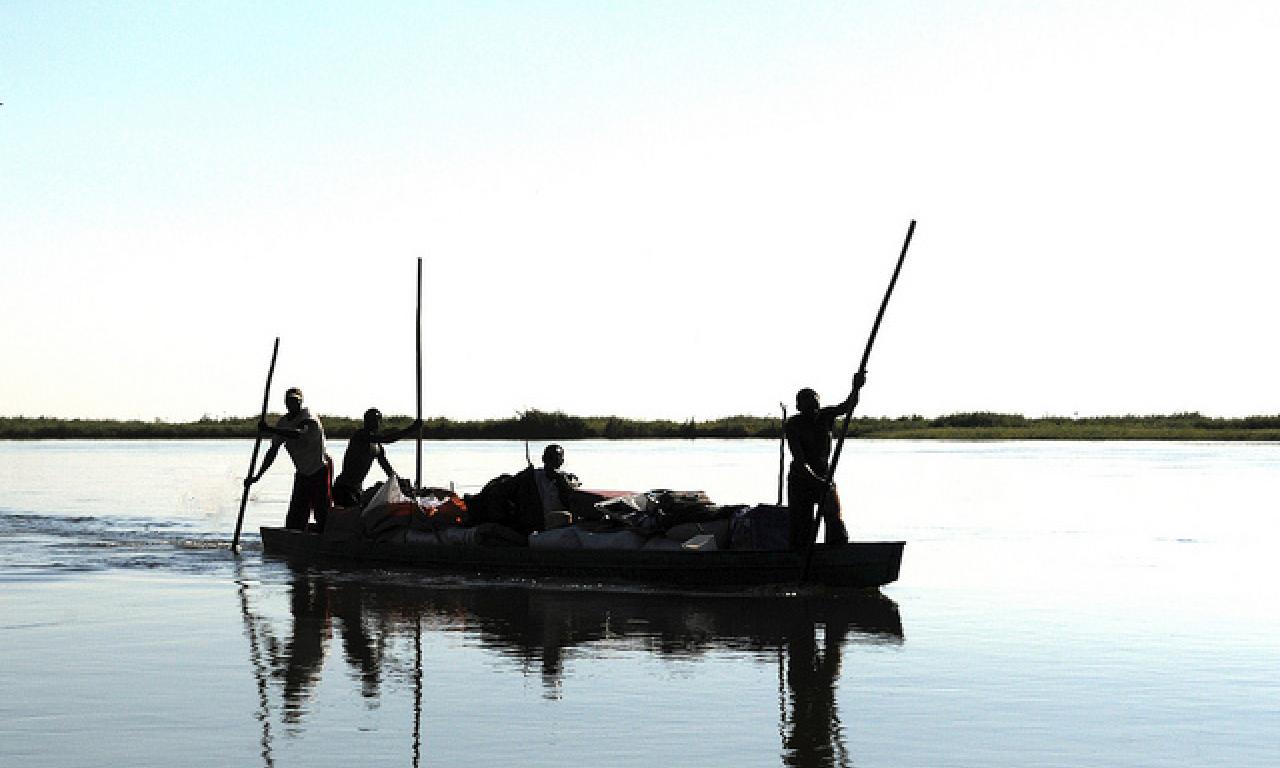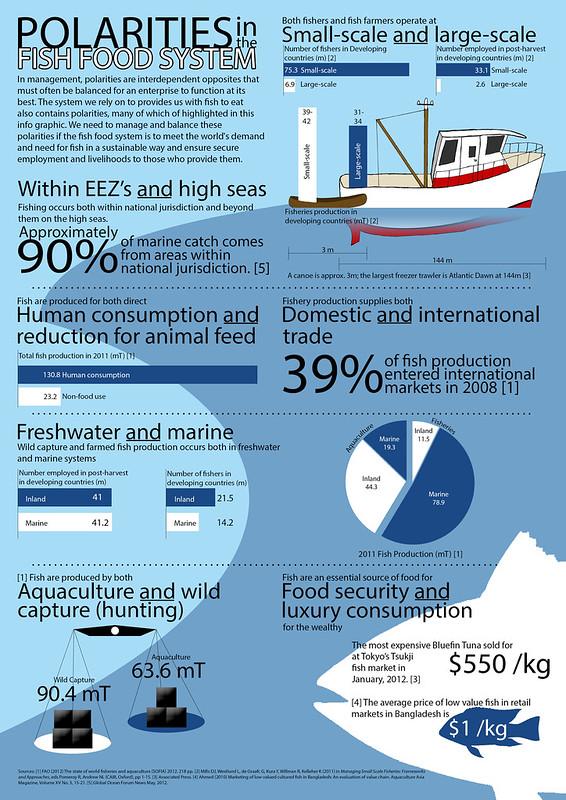
I was recently fortunate enough to attend Seaweb's 10th International Seafood Summit in Hong Kong. Fortunate for two reasons. First, because I had the honor of addressing the conference in an opening plenary presentation. Second, because I got to listen to a remarkable array of talks exploring solutions for ensuring a sustainable supply seafood to meet the world's growing demand and need.
Recommended publications
- Fisheries and HIV/AIDS in Africa: investing in sustainable solutions
- Eco-certification of farmed seafood: will it make a difference?
Stephen reflects on the outcomes of Seaweb's 10th International Seafood Summit, that was held in Hong Kong from September 5-8, 2012
Listen to this podcast
Download
I was recently fortunate enough to attend Seaweb's 10th International Seafood Summit in Hong Kong. Fortunate for two reasons. First, because I had the honor of addressing the conference in an opening plenary presentation. Second, because I got to listen to a remarkable array of talks exploring solutions for ensuring a sustainable supply seafood to meet the world's growing demand and need [1].
When Kristian Teleki, the Vice President of Seaweb, first invited me to give the plenary address he asked me to challenge and provoke the audience. He was especially keen that I provide delegates with some alternative perspectives to think about. To do that, I chose to focus part of my talk on what I see as one of the great challenges for the seafood industry - more explicitly recognizing and accommodating the many polarities of the fish food system [2,3].
What do I mean by polarities? In management polarities are interdependent opposites that must often be balanced for an enterprise to function at its best. Within the fish food system, one such polarity is that we get supply from both marine and freshwater. So what you may ask? Well, the problem is that, despite the importance of freshwater fish production we tend to ignore it. For example, several funding agencies with an interest in ensuring sustainable fish supplies have adopted "Ocean" initiatives that focus exclusively on marine systems. Without concomitant investment in freshwater fisheries and aquaculture a key element of the system will be neglected.
Another polarity is that between small and large-scale fisheries. Unfortunately, most of the discussion and effort to ensure sustainability focuses on the large-scale fisheries sector, with much less attention to small scale fisheries that supply the bulk of the fish and employ most of the people [4]. Again, more balance is needed.

Of course, there is nothing wrong with prioritization "per se". Indeed, several sessions at the summit provided ample evidence for how far you can get through focussed efforts. Take product certification schemes as a means for driving seafood sustainability as an example. The commitment by Sainsbury's that, by 2020, all the fish they sell will be independently certified as sustainable is clear evidence of the power of this approach [5]. But, any single approach will always be partial and we need to continually ask ourselves whether our attention and investments are appropriately balanced. Alternatives or adaptations to certification will almost certainly be needed, for example, to drive sustainability for products entering local and regional markets to meet the needs of poor consumers.
I am happy to say that several of the sessions during the Summit did serve to balance the conversation in ways that I think are needed. Sessions on how impact investors can support small-scale aquaculture enterprises [6], and on how reform of small-scale fisheries in Mozambique and Cambodia is being tackled are both good examples. These are encouraging signs, but we will need to do more to encourage the breadth of coverage needed to ensure the sustainability of the fish food system as a whole.
Listening to the conversations at the conference I was also encouraged by how much talk there was about transformational change and the importance of collaboration and partnership to make progress. For me, this signals a growing maturity in the dialogue, especially between private sector companies and conservation NGO's.
This theme was touched upon in the closing sessions when the evolution of the Seafood Summit over the past 10 years was discussed. Clearly much has changed, most of it for the better, but my sense is that we are now entering a distinctly new era in which collaboration and partnership becomes ever more important.
We now need to ask what the next level of collaboration and partnership should to look like.
We also need to ask what will prevent better collaboration and what will help us achieve it. This will require NGO's to ask themselves whether their role and mode of action needs to change in the coming decade. And it will require private sector participants to encourage other companies to participate in dialogue. It will also require international organizations like my own, and researchers in university and national institutions to reflect on how they might change to better inform and facilitate the changes needed.
Reflecting on my three days in Hong Kong I arrive at a sense of cautious optimism. Provided we focus on building the durably and trusting partnerships needed I am optimistic that we can navigate and respond to the many challenges the fish food systems faces now and will face in future.
1. The presentation Evolving Solutions for New Horizons can be found at: ...
2. The program for the Hong Kong Seafood Summit and copies of many of the presentations can be found at: http://www.seafoodsummit.org/program/
3. An infographic summarizing the polarities in the fish food system.
4. Taking developing countries as a whole, for example, 91% of fishers are employed in the small-scale sector. Mills DJ et al. (2011) in Managing Small Scale Fisheries: Frameworks and Approaches, eds Pomeroy R, Andrew NL (CABI, Oxford), pp 1–15.
5. Crossing Cultures – Implementing a Sustainability Policy in
Global Organisations. Mr Ally Dingwall, Aquaculture and Fisheries Manager, Sainsbury's.
6. Impact investing in small-scale aquaculture enterprise.
7. Building Community Support through Evidence-Based Research for Fisheries Management in Mozambique, Jennifer Barker (Global FISH Alliance) & Isabel Ferreira (Pemba Bay Initiative); Food Security for a Nation: Collaborating on Community Fisheries in Cambodia, Jennifer Barker, (Global FISH Alliance), Om Savath (Fisheries Action Coalition Team). (Presentations are unavailable at the time of writing but check [2] for updates).